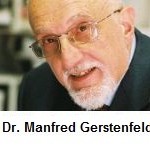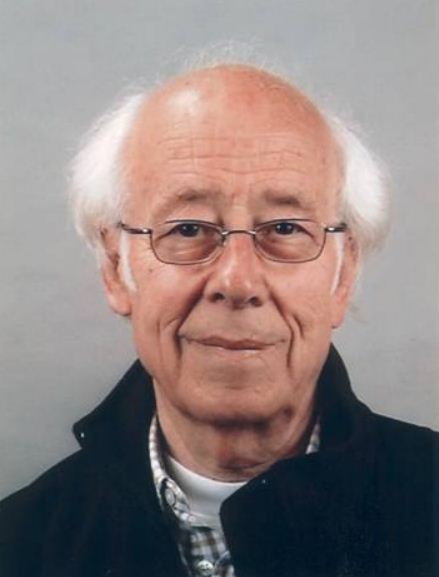Interesting, but not surprising, to learn that Munib Younan is one of the few signers of the anti-Israel document. Younan happens to be a fluent speaker of Finnish, and every time he visits the country, the state broadcaster, YLE, allows him a platform to spew his nonsense. What makes it all the more devious, is the fact that most Christians here wouldn’t believe that a bishop would use his position to lie through his teeth without so much as batting an eye.
NOTE: This was first published at Israel National News, and republished here with the author’s consent.
Professor Hans Jansen:
“They heavily criticized the signatories because they used the Bible to legitimize their political preferences and visions. The theologians said that this approach turns religion into ‘a human ideology.’ They further remarked that ‘the Kairos document is inspired by so-called new historians in the Middle East, who have for several years been re-writing the history of the 1948 events in favor of the Palestinians. These theologians referred to the document as ‘a shameless brutality.’”
PROTESTANTS AND ISRAEL – THE KAIROS DOCUMENT DEBATE
Manfred Gerstenfeld Interviews Hans Jansen
 “The Protestant world is greatly divided regarding Israel. On one hand, there is much hate promotion against Israel, on the other hand, there are many supporters of Israel, in particular among Evangelical and Orthodox Protestants.
“The Protestant world is greatly divided regarding Israel. On one hand, there is much hate promotion against Israel, on the other hand, there are many supporters of Israel, in particular among Evangelical and Orthodox Protestants.
“One important occasion where both could be seen was at the debate concerning a text which became known as the Kairos document. It was published in 2009 by Palestinian Christians. The official title is ‘A moment of truth: A word of faith, hope and love from the heart of Palestinian suffering.’”
Prof. Hans Jansen is the author of a major and frequently reprinted work in Dutch titled Christian Theology after Auschwitz.1 The subtitle of his first tome is The History of 2000 Years of Church Anti-Semitism. The second tome—in two volumes—is subtitled The Roots of Anti-Semitism in the New Testament. Jansen, a Dutch Protestant, taught history at the Flemish Free University in Brussels (1990-2000) and since 2002, teaches at the Simon Wiesenthal Institute in the same town.
“The central argument of the Kairos document is that only Israel is responsible for the problems in the region. The document called for considering the Israeli occupation policy as ‘a sin.’ The main aim of the document is to call for an international economic boycott against Israel.
“Later it became known that the Kairos document had been promoted in various countries as a declaration of the most prominent Palestinian Christian leaders such as the Greek Orthodox, the Roman Catholics, the Lutherans, the Anglicans and the Baptists. This was entirely false – not a single leader of these churches signed the document.
“The document had been signed by only one church leader, Monib Younan, Bishop of the Evangelical Lutheran Church in Jordan and the Holy Land. This church has a few hundred members in the areas under the Bishop’s authority and was founded in 1959 by German Lutheran missionaries. Its membership is miniscule compared to the 400,000 Christians who live in these areas.
“Another initiator of the document is Yusef Dahan, local representative of the World Council of Churches. All other signatories are local pastors, lay people or religious functionaries who only represent themselves. One of them is the retired Roman Catholic Patriarch of Jerusalem, Michel Sabbah. His successor, the actual Patriarch, did not sign. Another signatory is the Greek Orthodox religious functionary Atallah Hanah, who is in discord with the Patriarch of his church.
“In many countries, the media has greatly overstated the relevance of the signatories. It has also understated the importance of the major opposition against the document.
“I have in particular followed the debate in the Netherlands. The Kairos document was criticized by various important Christian organizations. Twelve prominent theologians strongly attacked the document a few days after it was presented in December 2009 to leaders of Dutch churches. The Dutch media however, gave the false impression that by accepting the document, the Dutch churches agreed with its content. This was untrue because how can one agree with a document of 70 pages which one hasn’t even read? The acceptance only meant that one was willing to listen to what needy Christians elsewhere had to say. Already at the acceptance meeting, there was criticism from the secretary of the by far largest Protestant community, The Protestant Churches of the Netherlands.
“The criticism of the theologians, which despite their eminence got little press coverage, was very broad. They called the document, ‘the hour of misleading’ and wrote that the Kairos document did not mention the promises God had given to Israel as a people in the Hebrew Bible. The document was even totally lacking in the biblical vision of Israel as a people. They heavily criticized the signatories because they used the Bible to legitimize their political preferences and visions. The theologians said that this approach turns religion into ‘a human ideology.’ They further remarked that ‘the Kairos document is inspired by so-called new historians in the Middle East, who have for several years been re-writing the history of the 1948 events in favor of the Palestinians. These theologians referred to the document as ‘a shameless brutality.’”
Jansen remarks: “Furthermore, the Kairos document is based on the so-called ‘replacement theology,’ which teaches that God’s promise to the Jews has been passed on to the Christians. This theology has led to repeated persecution of Jews throughout the centuries. There are still many churches, especially in the Middle East, that support this ugly theology.”
Jansen concludes, “From an historic perspective, it is important that the Kairos debate proves that when hatred of Judaism is nowadays propagated by Christians, there is also Christian opposition. Whoever studies the long history of this hatred finds that strong reactions against it in Christian circles were rare. From that point of view, the situation today is much more encouraging.”
Footnote:

